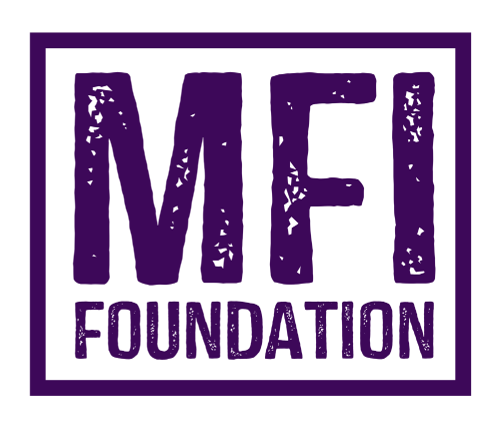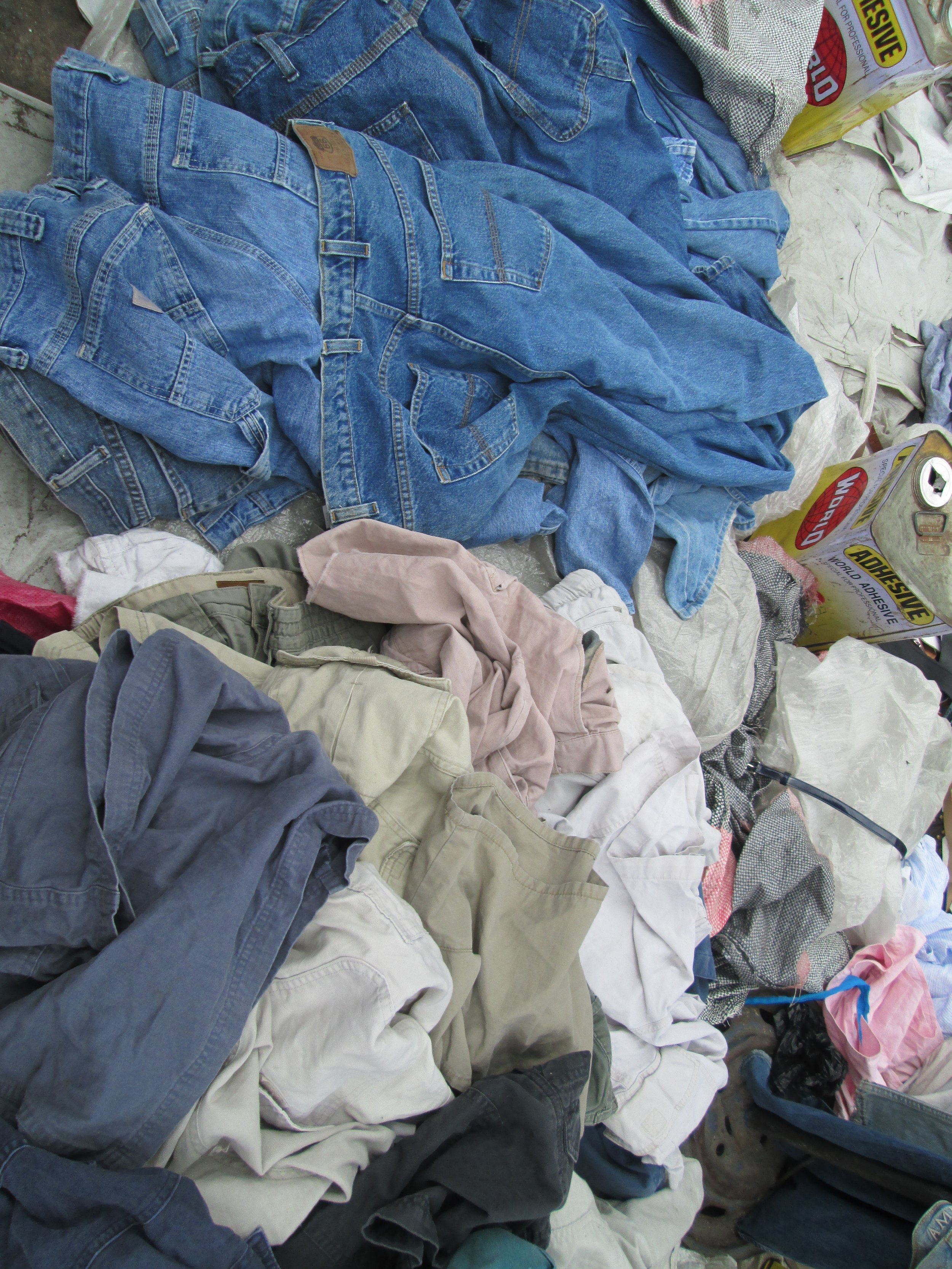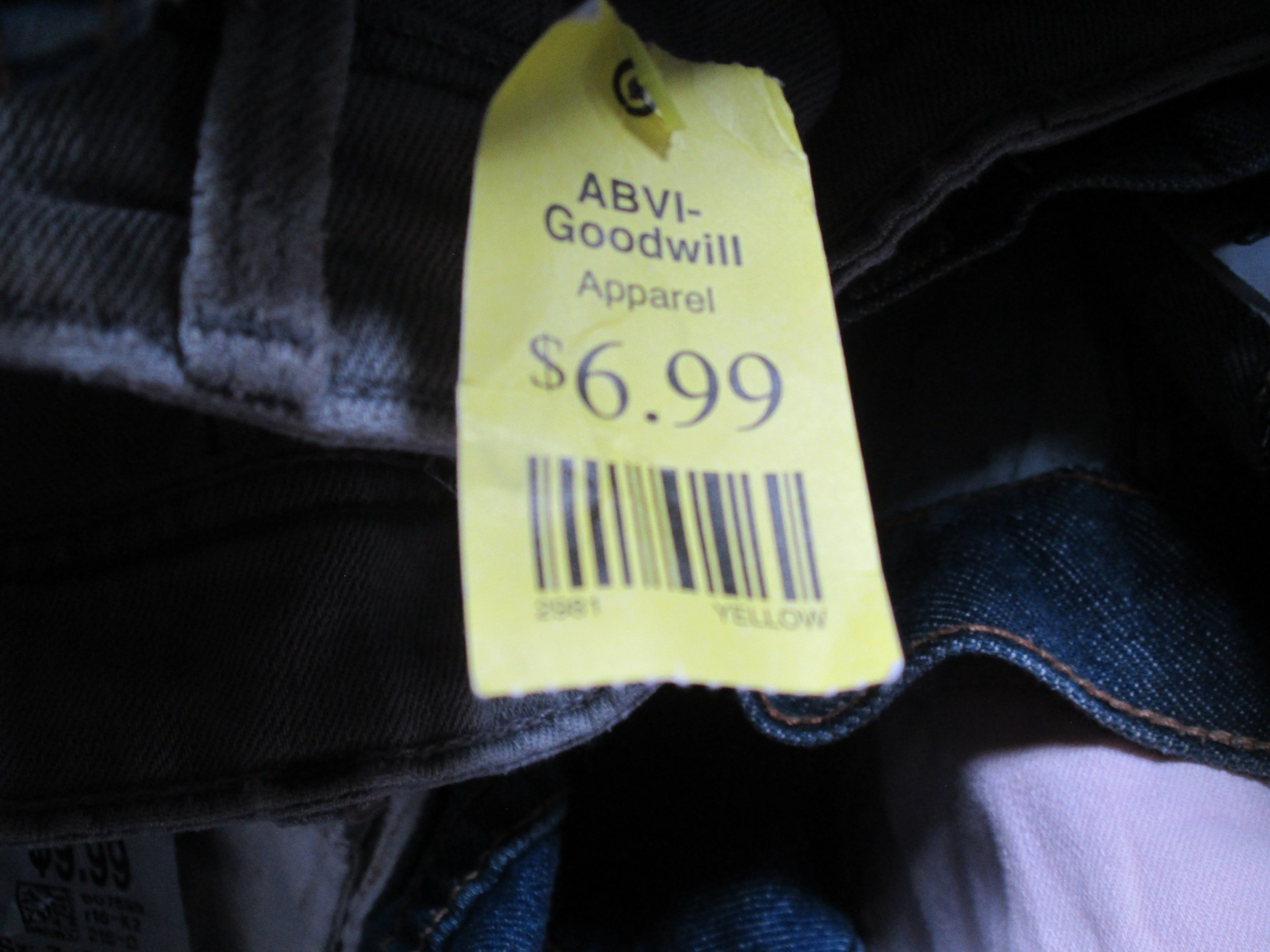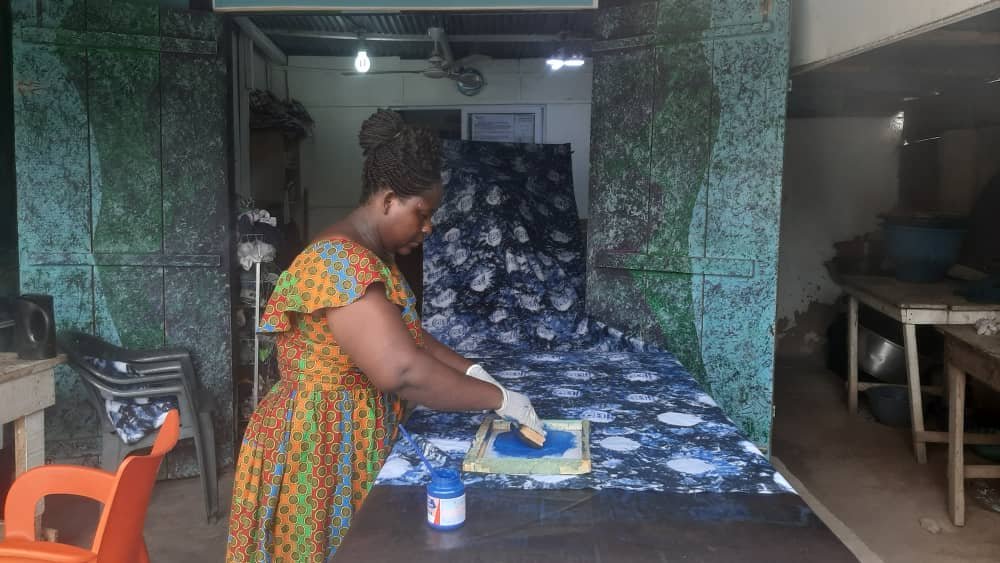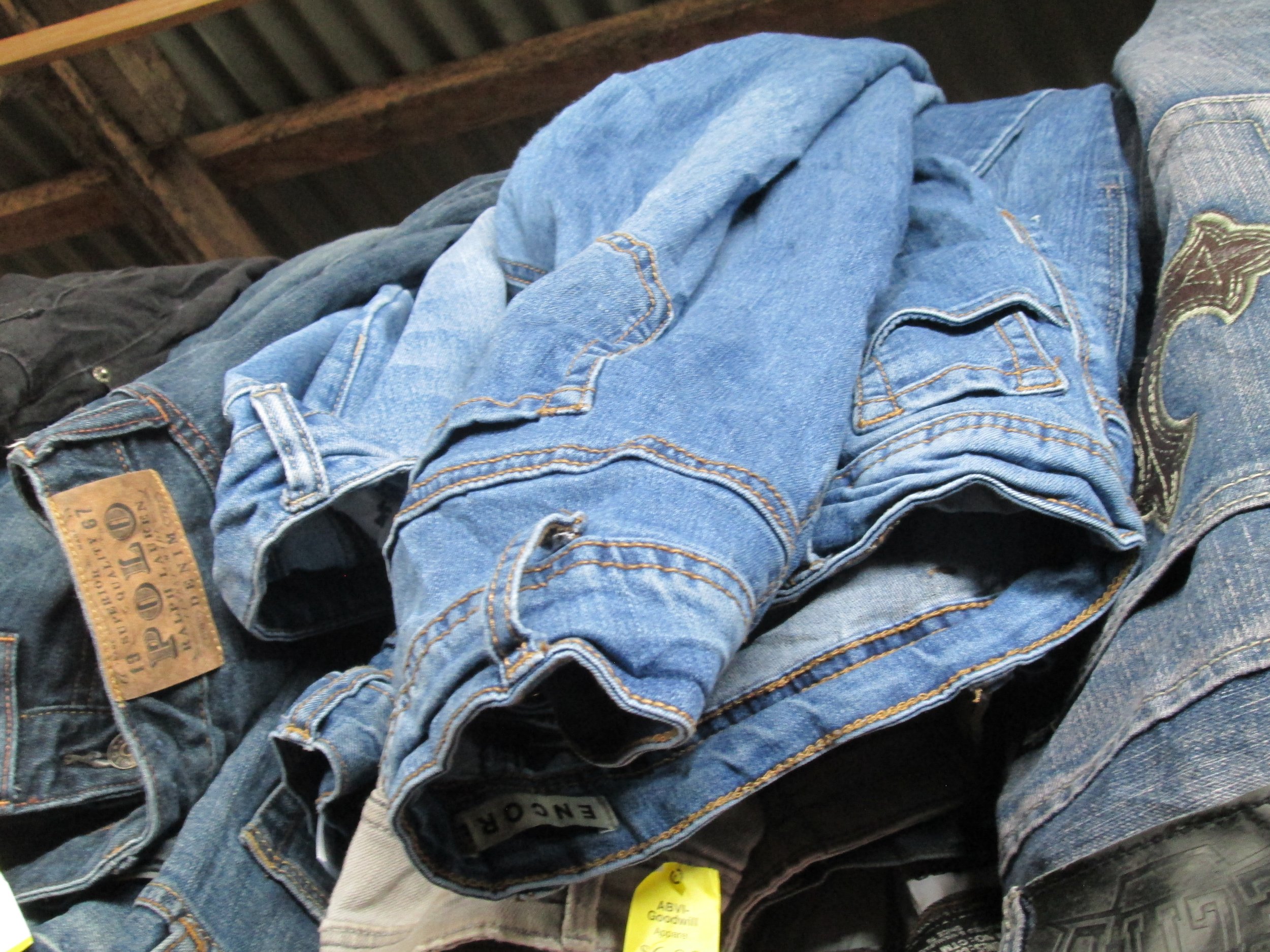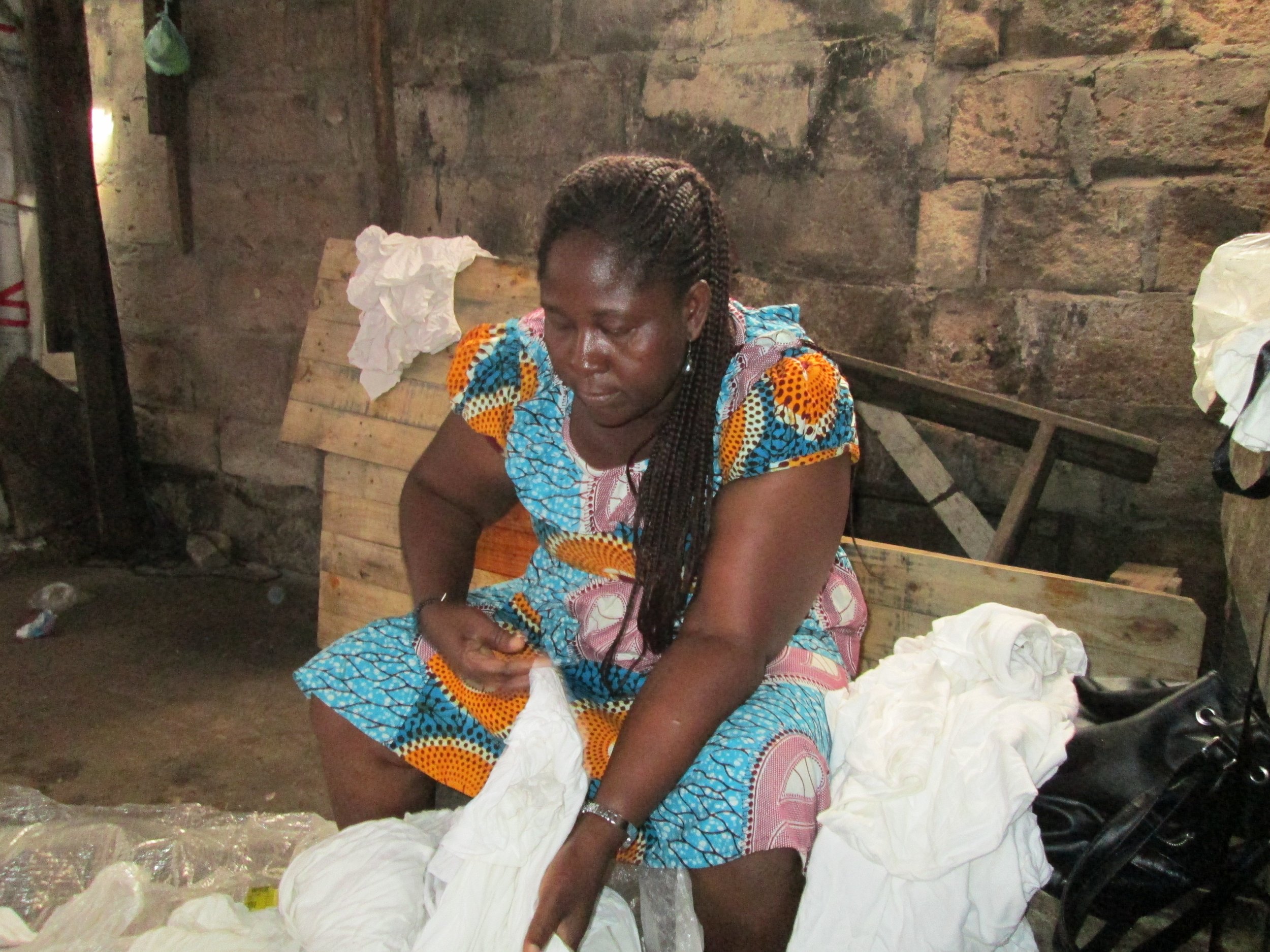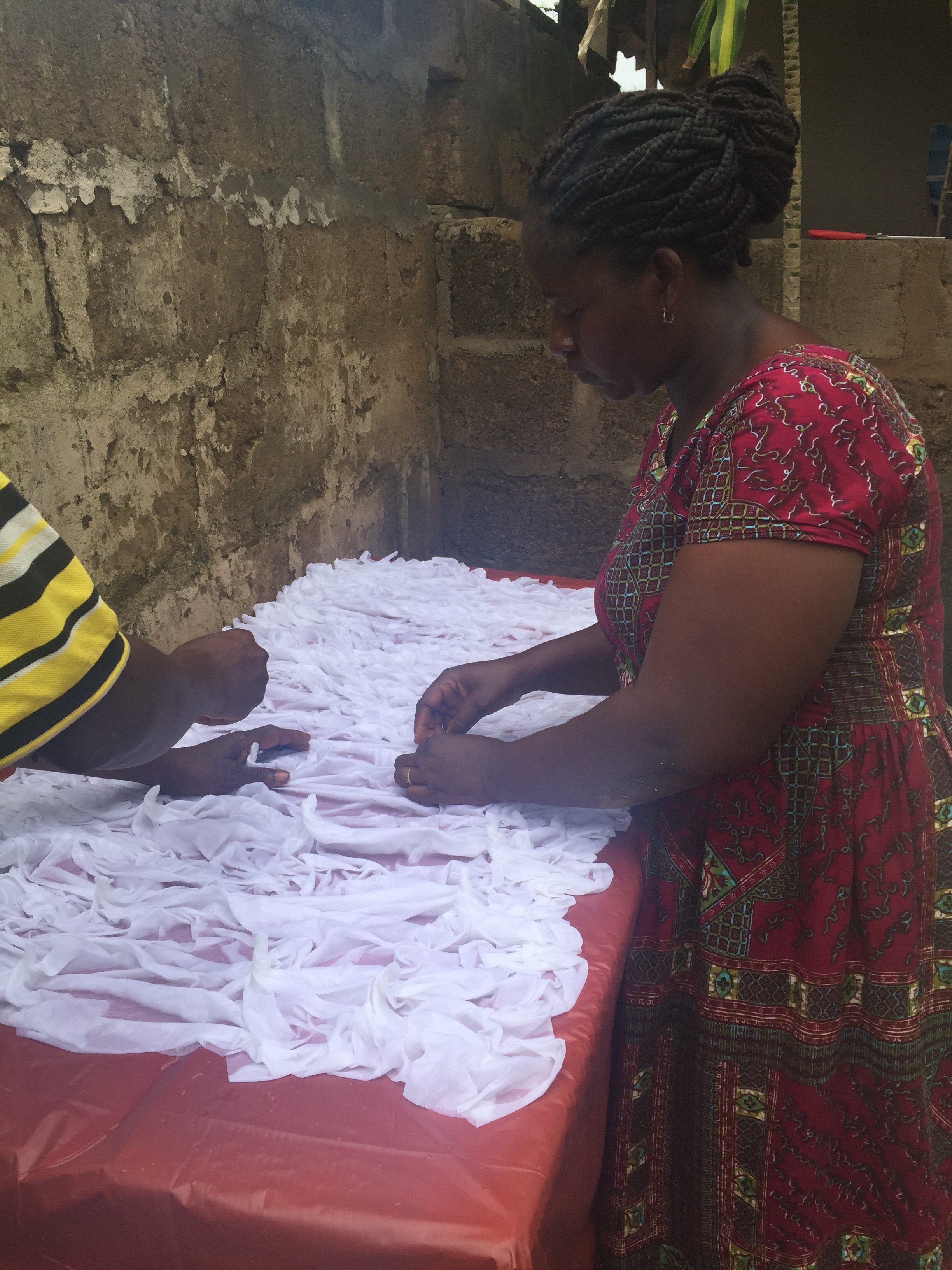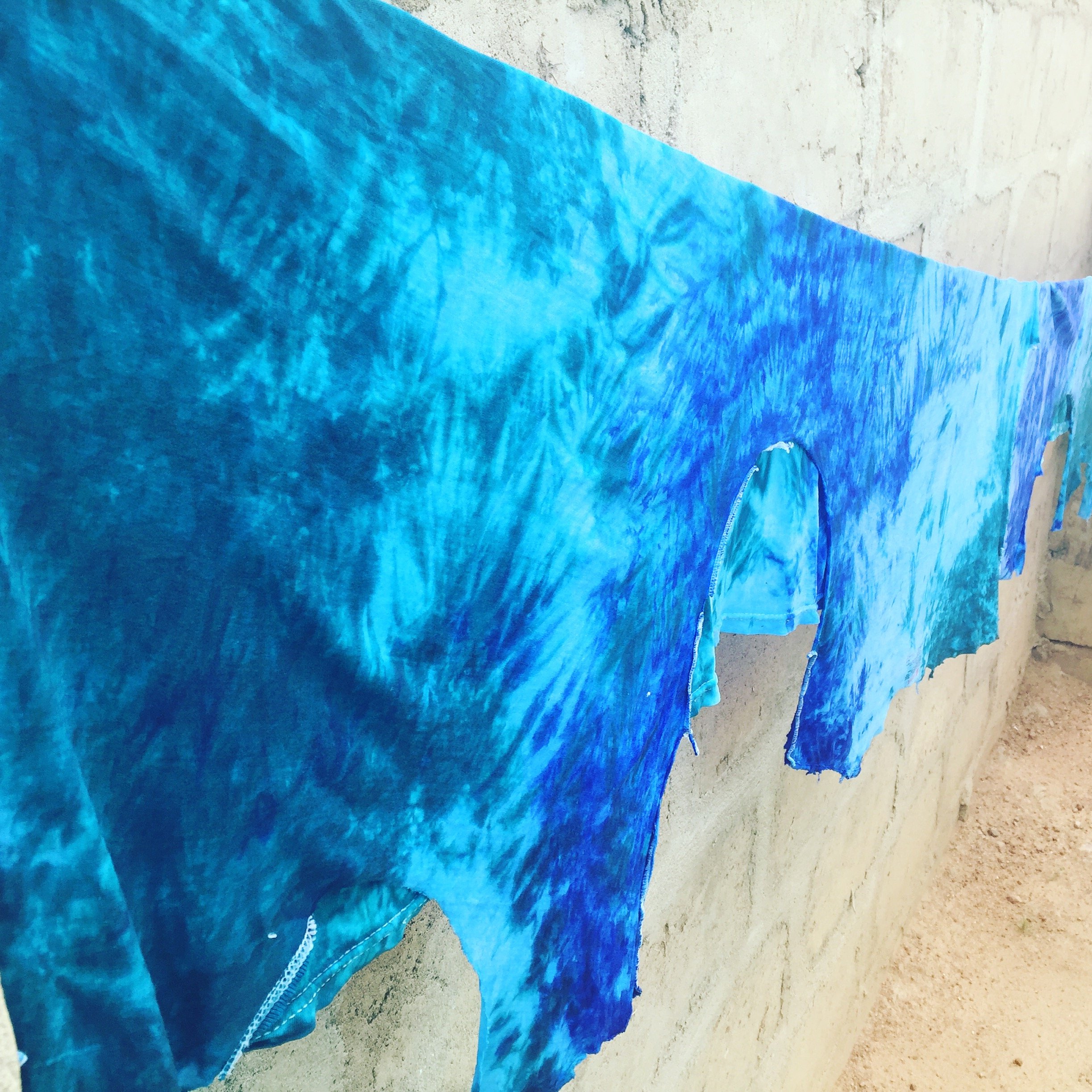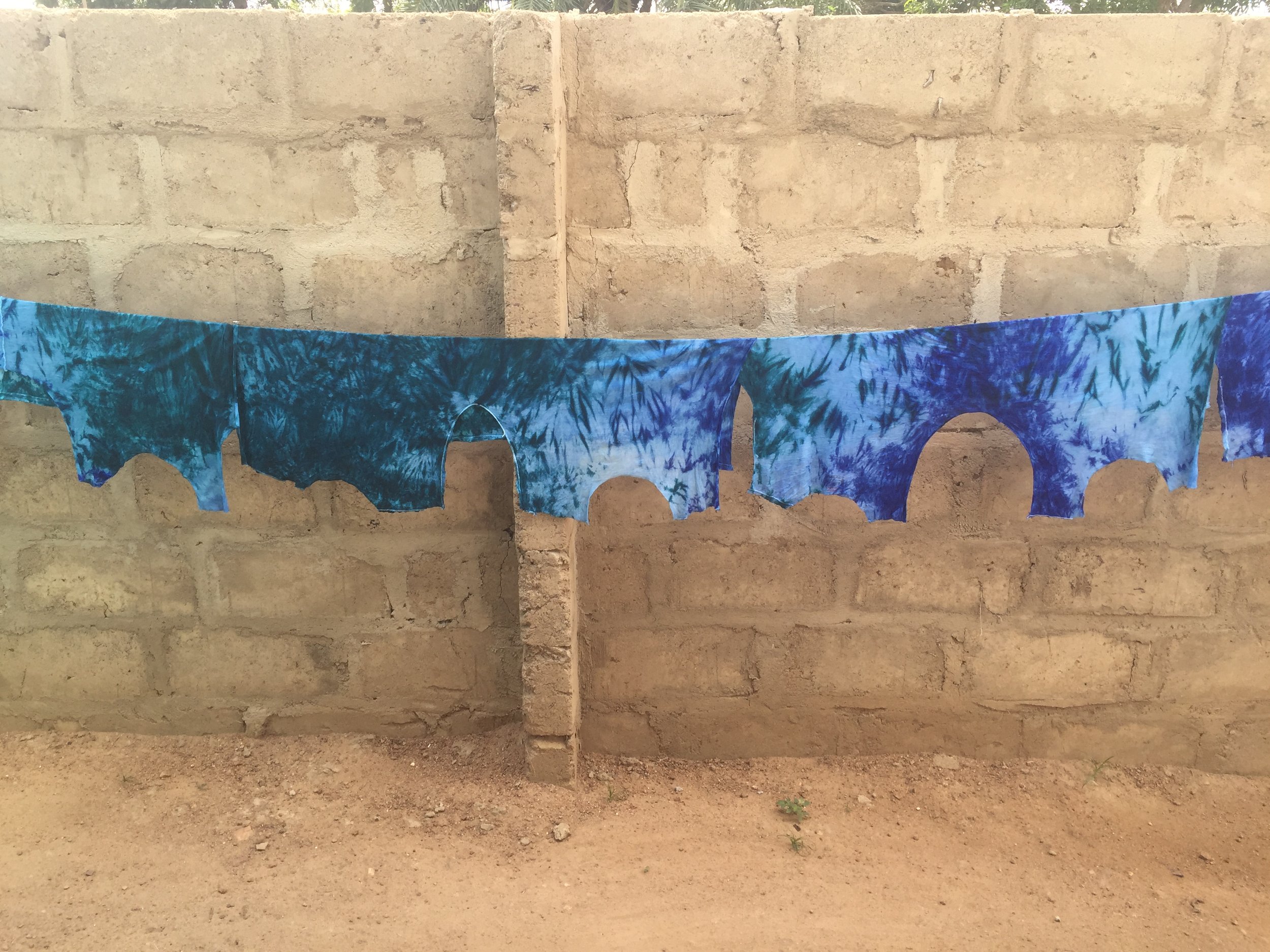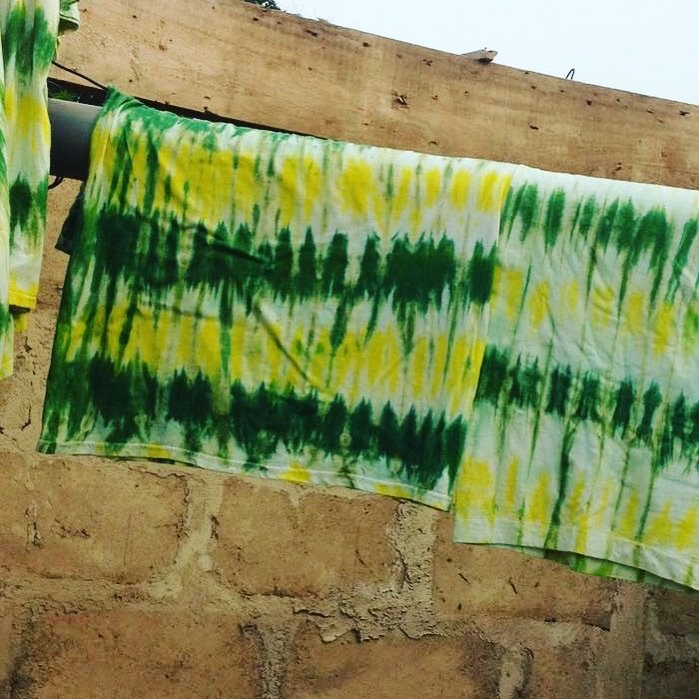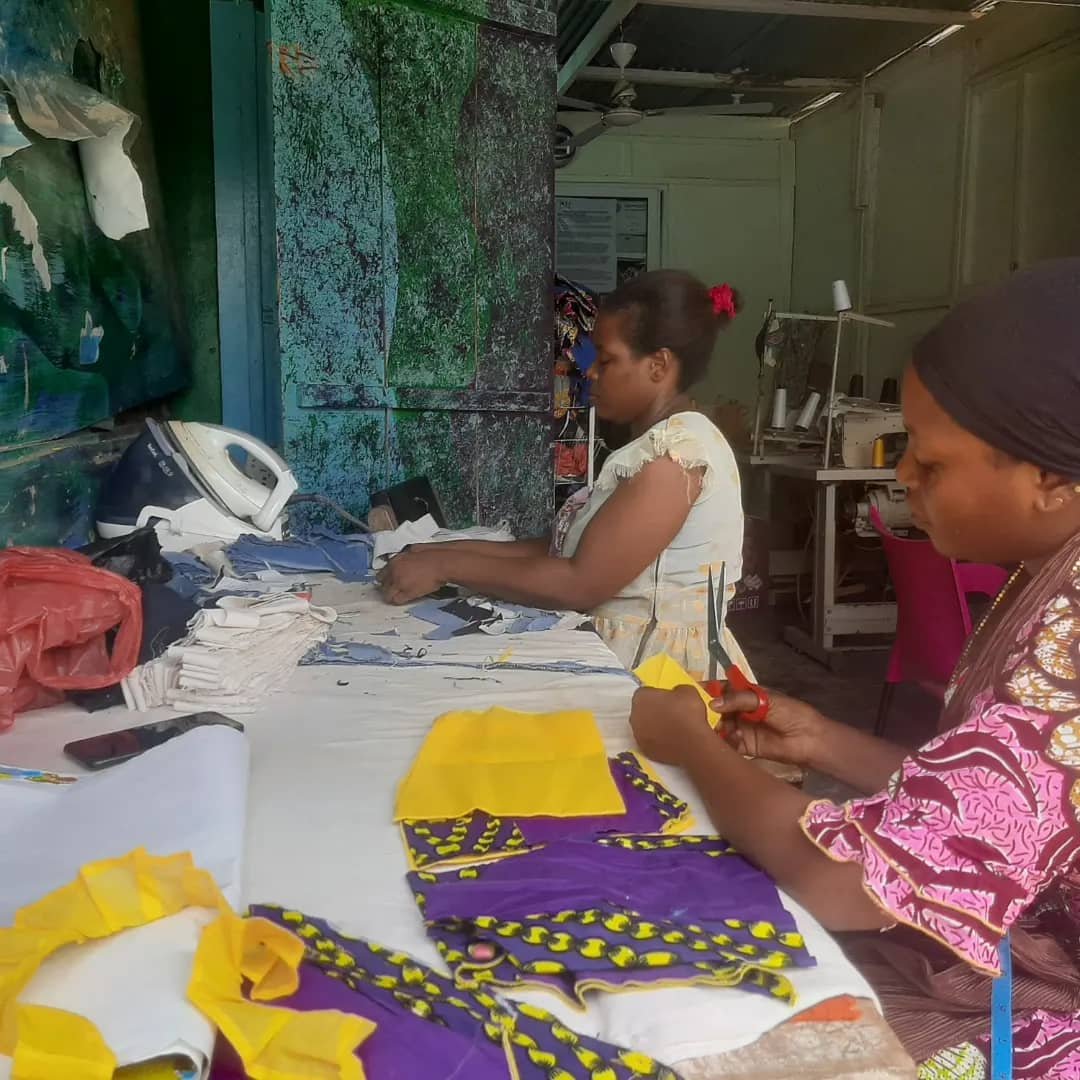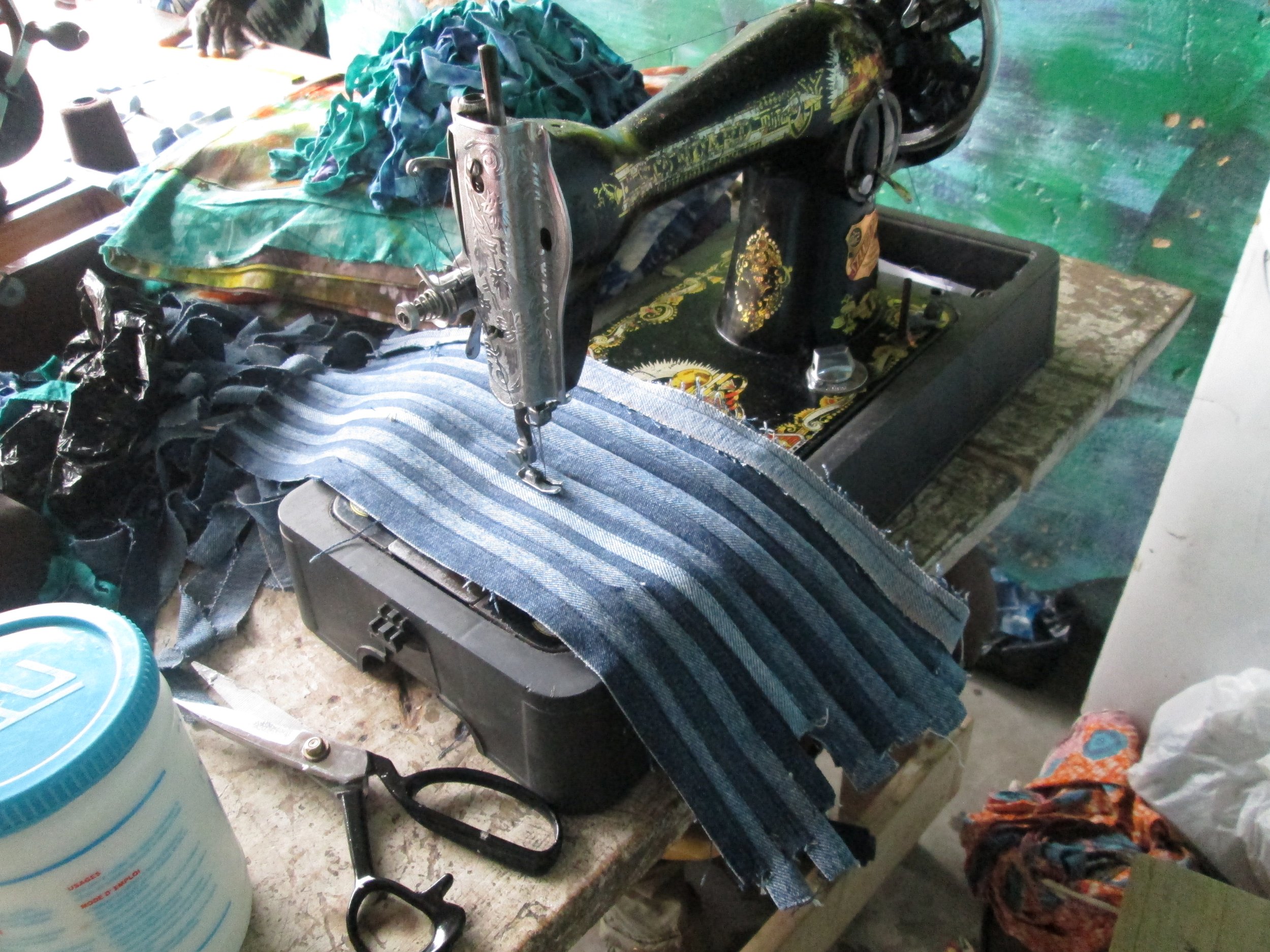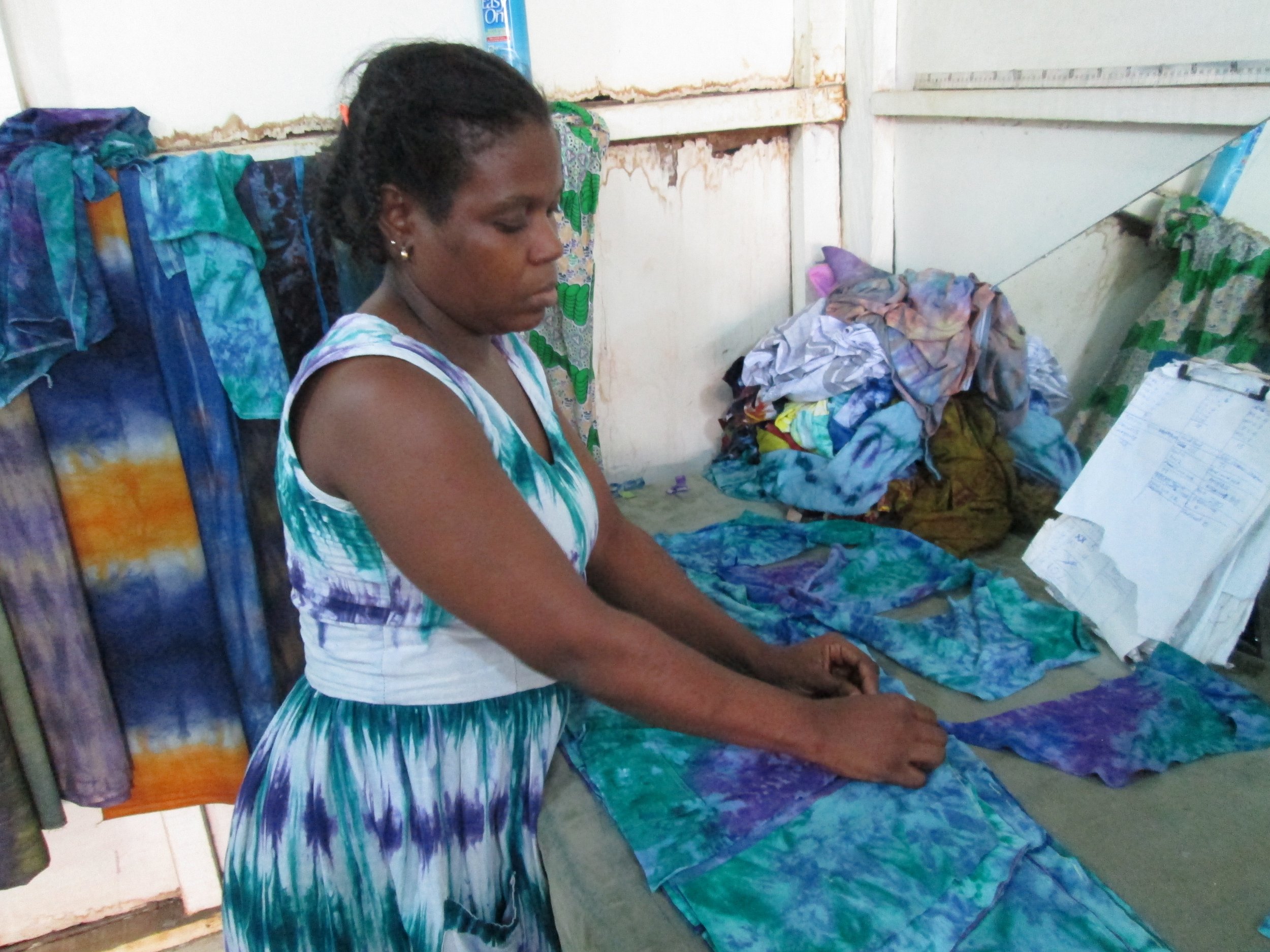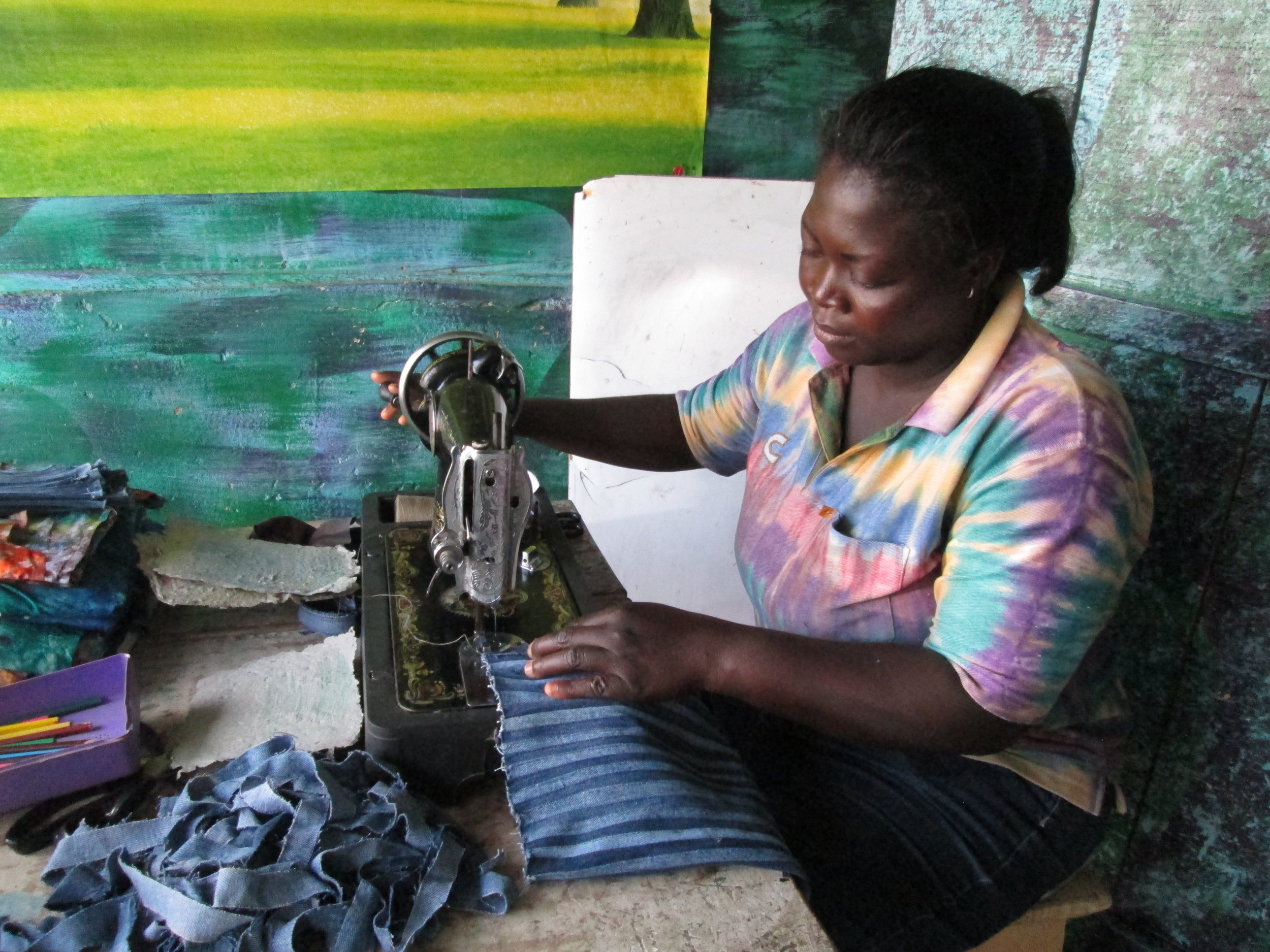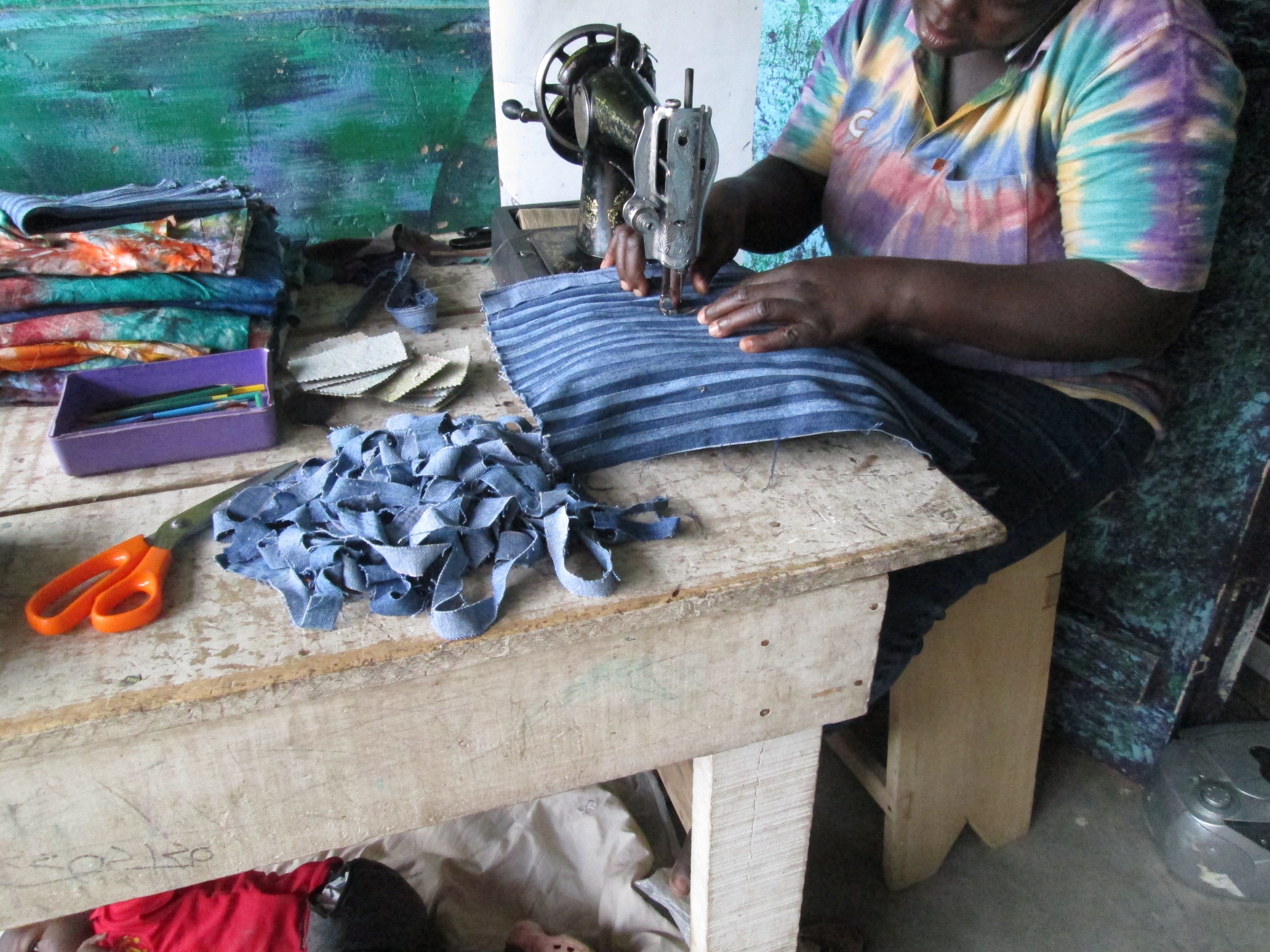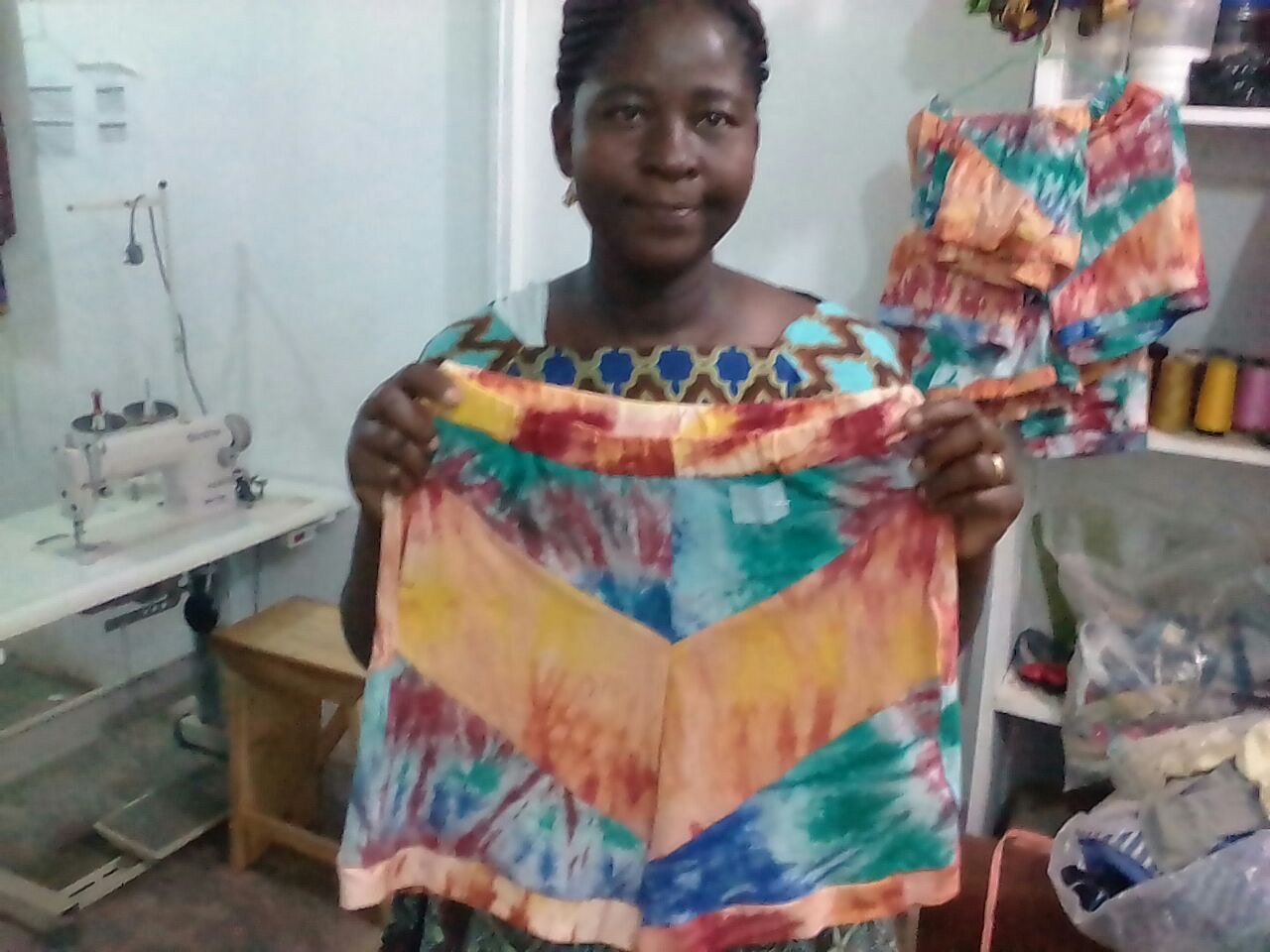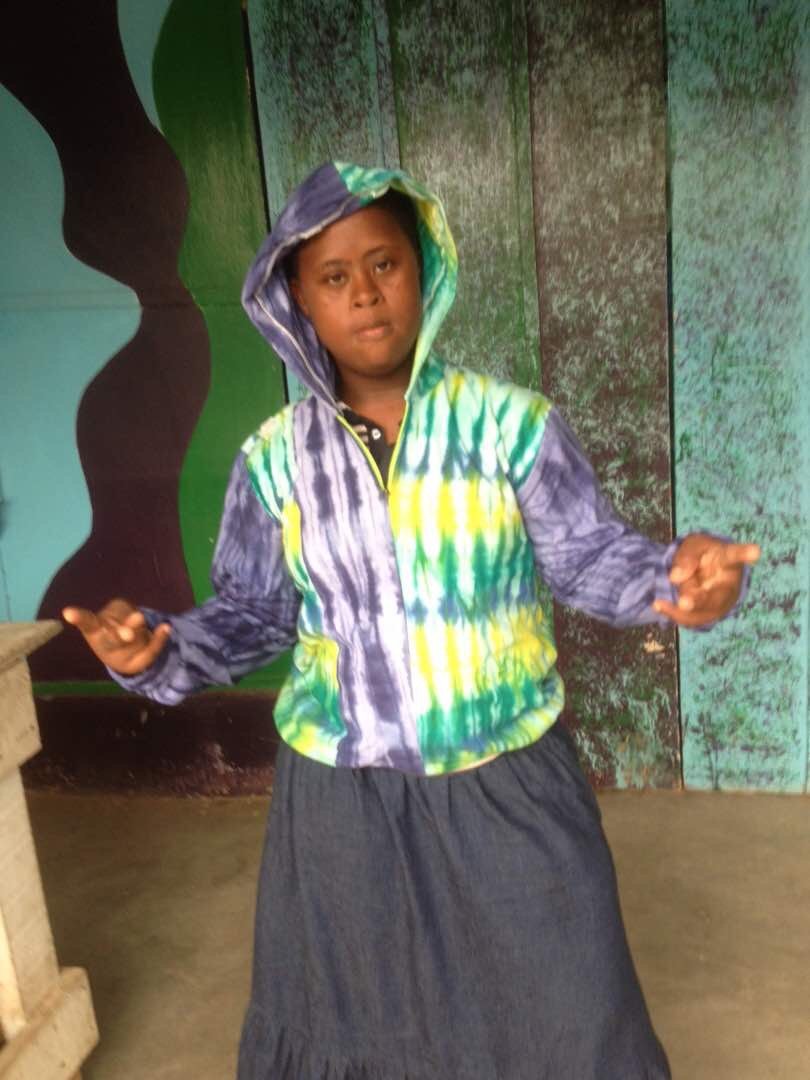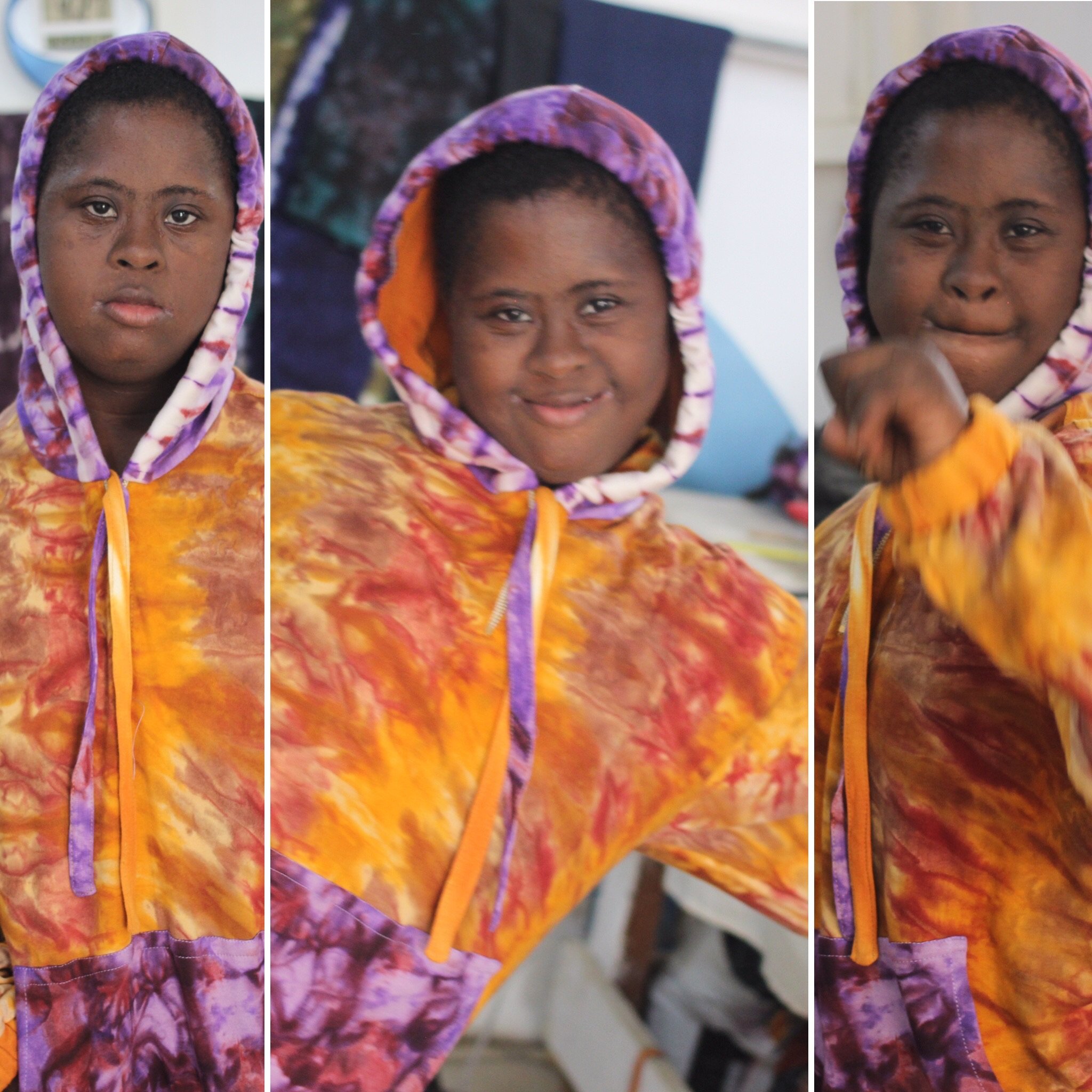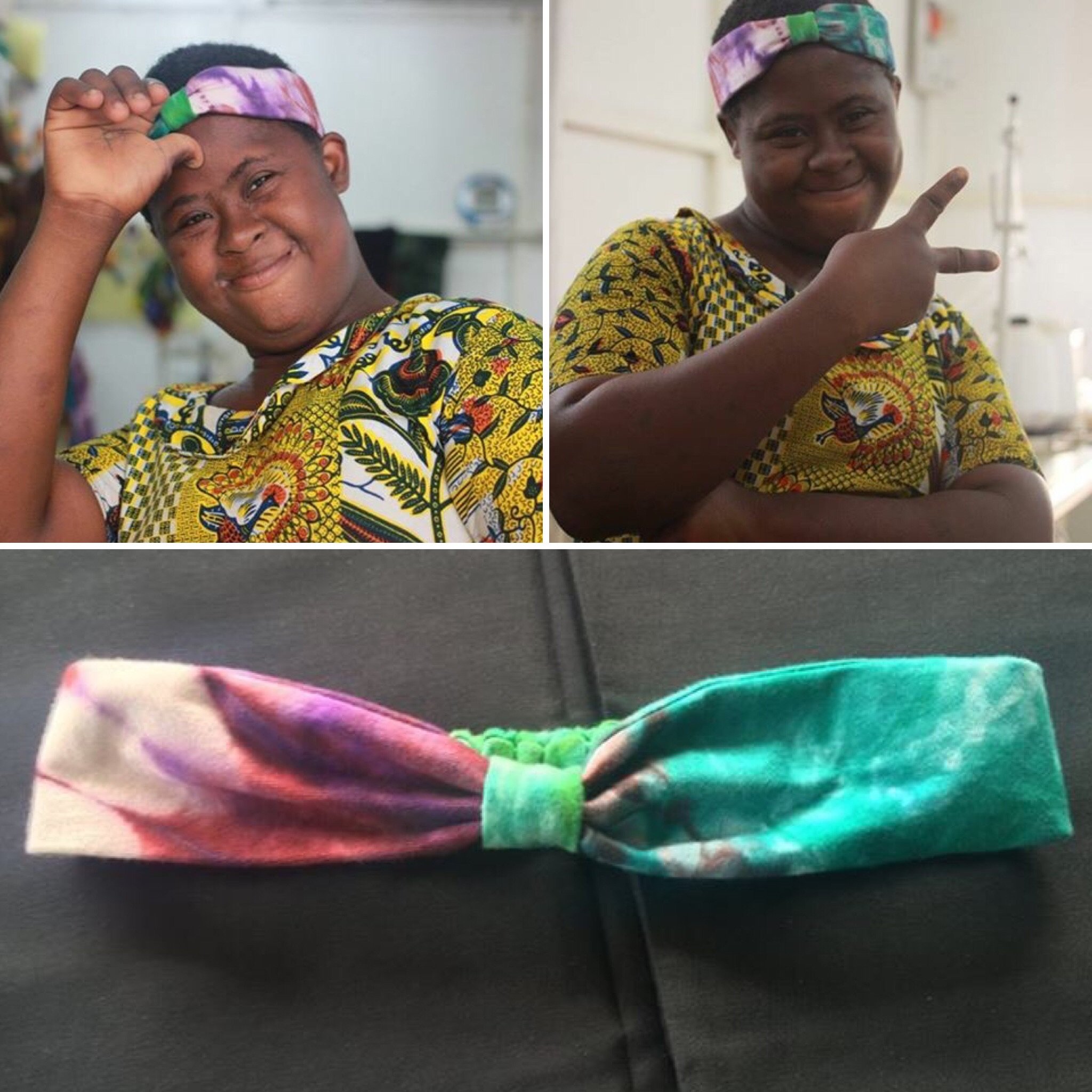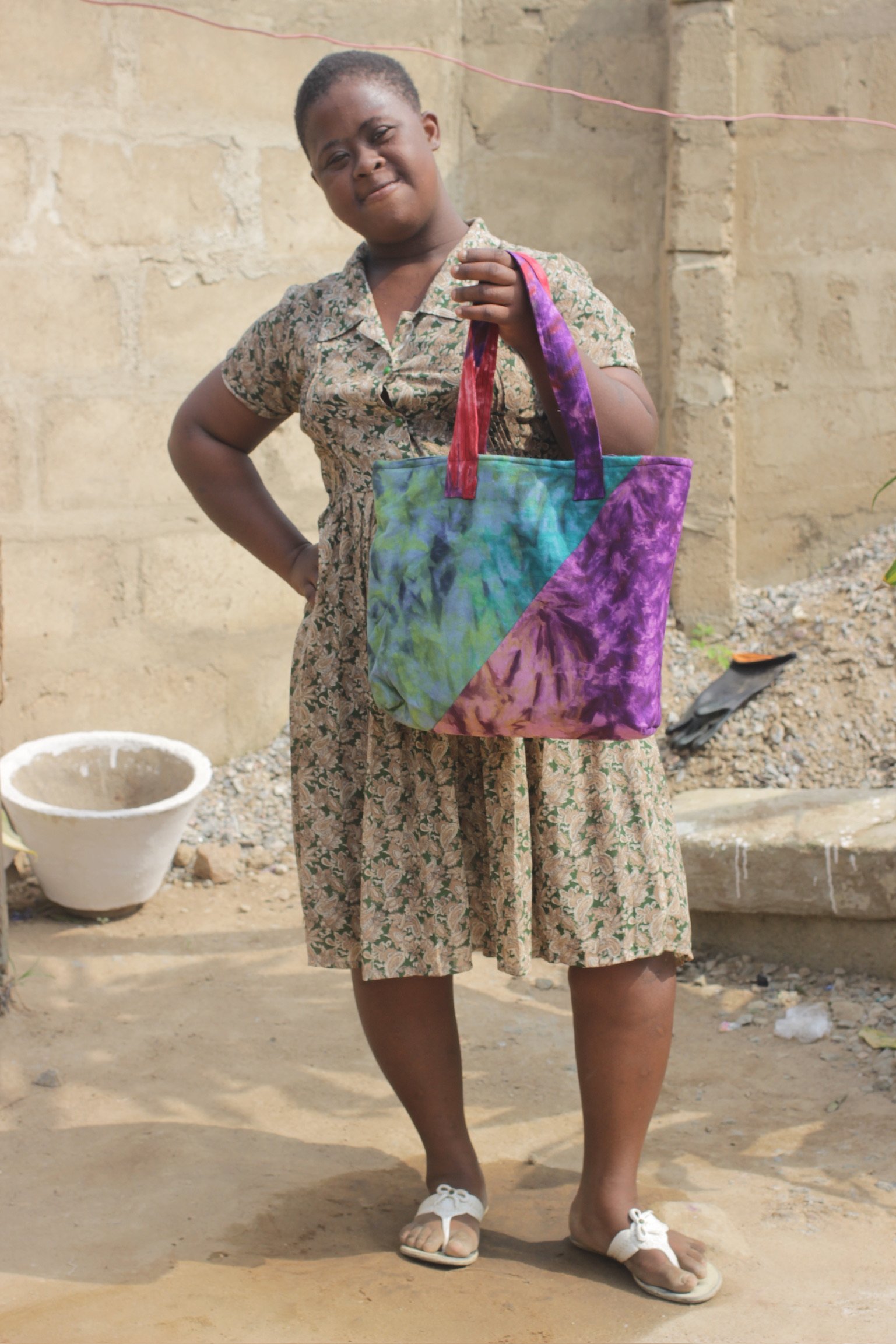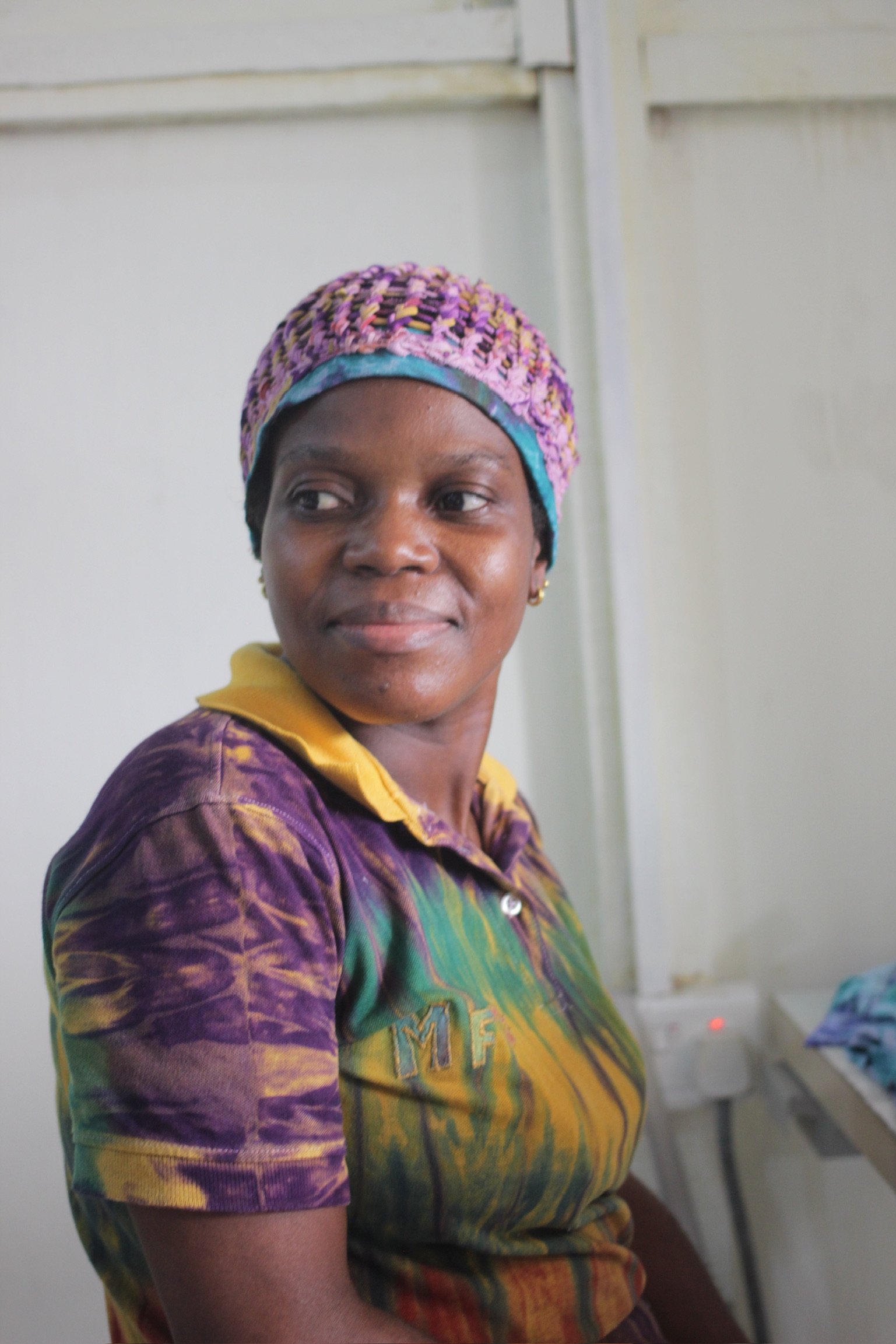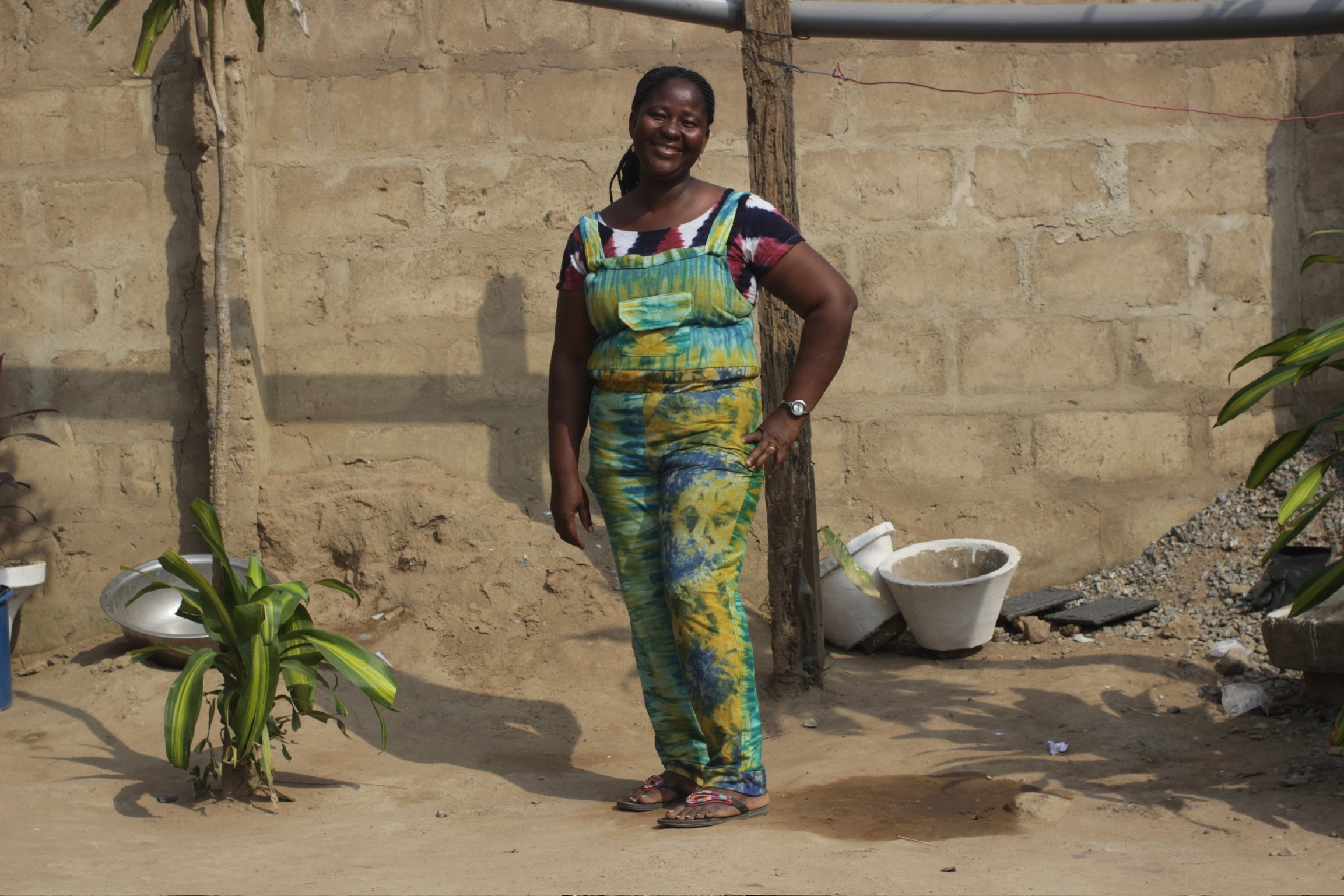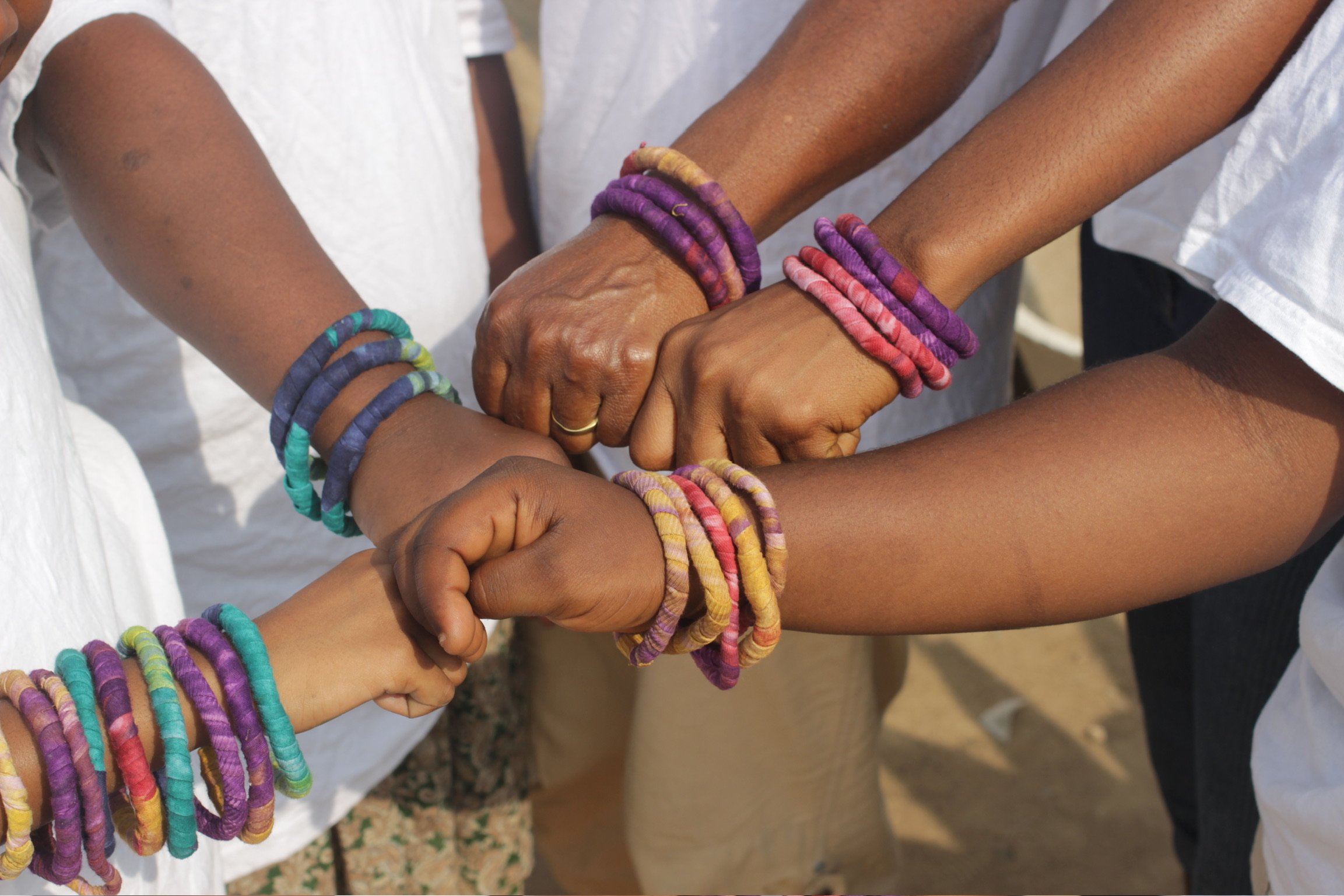Fashion Production Partner
The MFI Foundation is looking for collaborations with brands, designers, and organizations with a strong commitment to social and environmental responsibility. We specifically seek to work with partners that are willing to invest time in building a relationship, resources in professional development in areas within our production processes that require changes to meet your production needs, and provide support to our organization in our vision of becoming financially sustainable and growing our programs. To discuss the possibility of partnership, we encourage you to contact us.
About Our Upcycling Process:
One important aspect of the MFI Foundation’s work is that we capture used textiles before they make their way into the environment and cause pollution, and we reuse them. In other words, the MFI Foundation is working to mitigate an environmental problem (excess used textiles being dumped in Ghana) through creativity, living wages, and fashion. We use the term “upcycling” to describe this process because we are taking fabrics that were once discarded and transforming them into a more valuable product. Upcycling is also a great choice for us to reduce our environmental impact. By upcycling existing fabrics, we reduce our use of of new fabrics that require large amounts of water, fertilizers, and other chemicals to produce.
-
Our process starts with obtaining fabrics. In Ghana, there are many secondhand markets where thousands of pounds of imported clothes are resold every day. The largest market is Kantamanto Market, from which the MFI Foundation sources most of our fabrics through long-standing partnerships with several retailers. We travel to the market and purchase secondhand t-shirts, denim jeans, and jackets or sweaters (for linings and zippers). We specifically source over-sized, heavy, or otherwise unpopular styles that are unlikely to be purchased by local customers and are thus likely to enter landfills, open-air dumps, and the environment. By purchasing these materials, we support local retailers while diverting these textiles through upcycling.
-
Once we return to the MFI Foundation studio, we thoroughly wash the fabrics to prepare them for the upcycling process. We harvest rainwater to reduce the amount of groundwater that is needed for this step.
-
Our design process is grounded in our commitment to upcycling and sustainable design. As the lead fashion designer at the MFI Foundation, Matilda Lartey is meticulous about how she designs MFI products: “Making things with fabric is my passion. I love sewing. I am always thinking of creating different things.” Matilda also has experience collaborating with local and global designers to translate their visions into sustainable and upcycled designs. Some of our products contain tie-dye. Our denim product are not dyed and are therefore cut and sewn after their original wash. If the product contains tie-dye, the fabric is first shaped and tied into the desired design. It is then soaked while the dye is being mixed. Next, the dye is added to the fabric to create the desired pattern or effect. Lastly, the fabrics are left to dry before the cutting and sewing process begins. We are continuing to experiment with and learn about natural dying methods to expand our sustainable design toolkit and invite collaboration in this area.
-
The most complex step of the upcycling process is cutting and sewing the fabrics, and this is where much of the training for apprentices at our studio is focused. To avoid waste, we create beads and accessories using scrap fabrics and also sell our prototypes and samples at a reduced cost to reduce textile waste generated during the production process.
